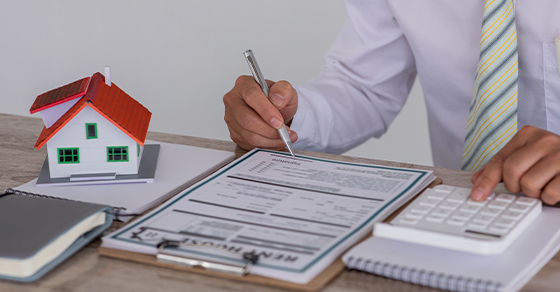
When Is a Good Time to Refinance a Mortgage?
Tags:
Refinancing your mortgage is kind of like hitting the reset button: you get to start from scratch by paying off only what’s left of your original mortgage agreement. This can allow you to get a better rate or lower payments on your mortgage. Since home ownership in Canada is on the rise, around three-quarters of Canadians who own a mortgage have a fixed rate mortgage. This leads to equity ownership in homes, which can be helpful when financial stress from other payments and bills starts mounting up.
Refinancing can be an attractive strategy, especially considering today’s low interest environment. Read on to find out if it’s the right move for you.
Why should I refinance my mortgage?
People decide to undertake home mortgage refinancing for a number of different reasons. Some may want to take advantage of lower interest rates for reduced payments, while others look to get access to more money through reduced payments which they can then use for other expenses, such as renovation or education.
The key benefit to refinancing is that you can build up equity faster, while also paying your mortgage off - and you can do these simultaneously. You’ll save money in the long term through better interest rates and lower monthly payments.
What about your existing mortgage plan?
Refinancing can only be the right strategy for you if it makes financial sense against your previous or existing mortgage plan. Deciding on home equity mortgages as a strategy can be stressful, so consider these three steps when evaluating your plan:
1. Reach out to your mortgage lender
Your lender will be equipped to answer a full range of questions from how difficult it would be to get out of your existing mortgage to how much you can borrow. Some lenders will have blended rate options or discounts on the prepayment plan, so make sure you know the options available to you.
2. Find out about your mortgage prepayment charge
The general rule of thumb for the prepayment charge is 3 months of interest payments. For a fixed rate mortgage it’s generally the higher of three months of interest payments and an interest rate differential amount. Of course this varies by financial institution and the existing clauses in your mortgage. Refer to a trusted lender or advisor on the interest rates and prepayment charge to ensure you’re getting the best rate.
3. Do your due diligence
Make sure to go over the clauses in your mortgage plan - and then go over them again. Also remember, although you may find a better deal somewhere else, switching your home equity mortgage and refinancing to another institution may rack up expenses. You often have to pay legal, administrative and registration costs charged by the other lender, so definitely consider if these costs are worth the amount you save with the mortgage.
Current Rate vs. Today’s Rates
If you have a five year fixed rate mortgage with a value of 3% or higher, a refinance is worth considering. The savings on what you’re paying today should generally be higher than the cost of any penalties or refinancing costs such as the legal or administrative fees mentioned above.
Doing an analysis of the rates will help you gauge if it’s the right time for a home equity mortgage refinancing. Due to the Covid-19 pandemic, interest rates are constantly fluctuating. Although fixed and variable rates started going down late 2019, the interest rates are creeping up again.
However, because the economy and housing market is currently down, banks and other financial institutions are implementing policies to incentivize the market to go back up. Although the market is constantly changing, it is forecasted that there will be adjustments to rates. If you’re convinced you want to refinance but have just been looking out for the perfect moment to act, now may be the right time.
Take Account of Your Other Debts
If you’re trying to figure out if refinancing is for you, consider your other debts - both past dues and ones you may incur in the future. Remember to include any interest rate savings realized by including your other debts. Sometimes, these can be rolled in with your new mortgage as well and factoring in these new savings may help you decide if this strategy is for you.
For those with high interest debt this may be a great solution, saving you money over the long term. It can also dramatically improve your cash flow. Again, factor in the payout penalty fees. If you find that your potential saving outweighs the earlier cost, that can help you with your decision.
Refinancing has to save you money and increase your cash flow. If you’re able to put some of this newly saved cash back into your mortgage, that’s another strategy to speed up your payment plan.
At Canadalend.com we understand that considering the possibility of home equity refinancing may be stressful and oftentimes confusing. Always remember that refinancing is a strategy that replaces your current loan with a special one that is tailored to your needs, so the refinancing should make financial sense to your situation. Our team of licensed mortgage refinancing experts can help guide you on the best strategy for your lifestyle and financial needs.
If you’re considering refinancing your mortgage, contact CanadaLend today at 1-866-422-6536 or contact us here.